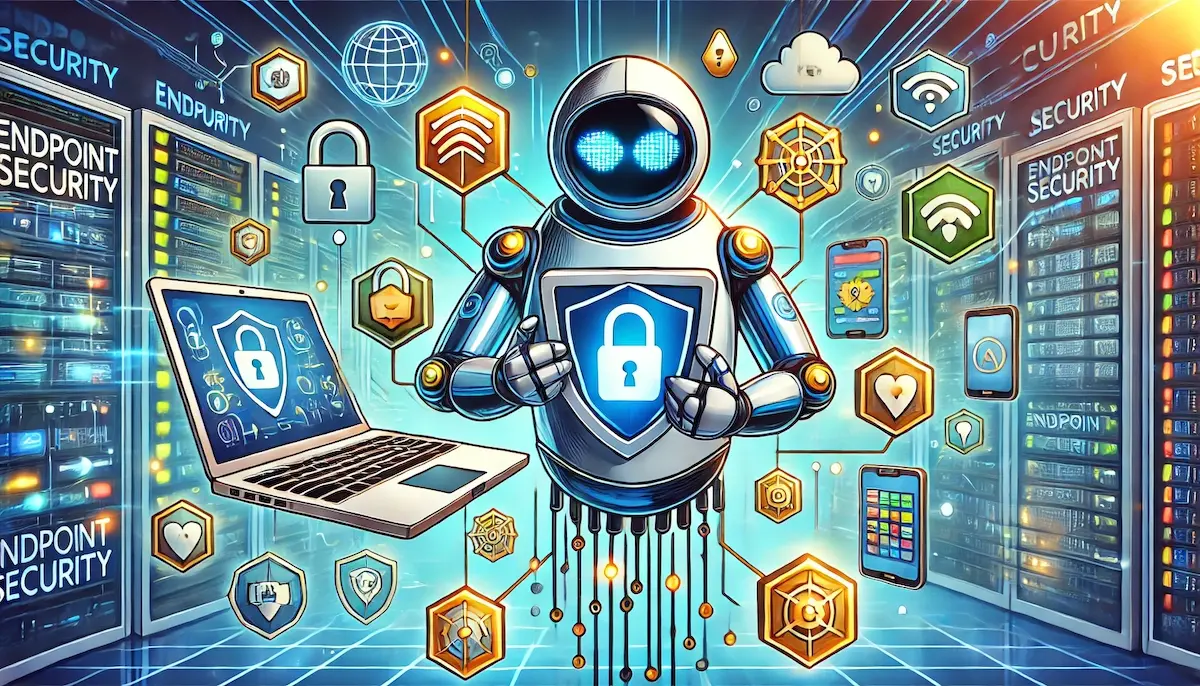Endpoint security is a critical component of an organization’s overall cybersecurity strategy, focusing on protecting devices such as laptops, smartphones, tablets, and desktops that connect to the corporate network. As the number of endpoints increases with the rise of remote work and bring-your-own-device (BYOD) policies, securing these entry points against cyber threats becomes increasingly important.
Understanding Endpoint Security
Endpoint security involves implementing measures to secure endpoints or end-user devices from threats. This includes a combination of hardware and software solutions designed to detect, prevent, and respond to malicious activities. Endpoint security solutions typically include antivirus software, firewalls, intrusion detection systems (IDS), and endpoint detection and response (EDR) tools.
The Importance of Endpoint Security
Effective endpoint security is essential for several reasons:
- Protecting Sensitive Data: Endpoints often store or access sensitive information, making them prime targets for cybercriminals.
- Preventing Malware and Ransomware Attacks: Endpoint security helps prevent malware, ransomware, and other malicious software from infecting devices and spreading across the network.
- Ensuring Compliance: Many industries have regulations that require robust security measures to protect data. Endpoint security helps organizations meet these compliance requirements.
- Maintaining Operational Continuity: Securing endpoints helps prevent disruptions to business operations caused by cyberattacks.
Key Components of Endpoint Security
- Antivirus and Anti-Malware Software: These tools scan and remove malicious software from endpoints, protecting them from viruses, spyware, and other malware.
- Firewalls: Firewalls monitor and control incoming and outgoing network traffic based on predetermined security rules, creating a barrier between trusted and untrusted networks.
- Endpoint Detection and Response (EDR): EDR solutions provide continuous monitoring and response capabilities to detect and mitigate advanced threats in real-time.
- Encryption: Encrypting data on endpoints ensures that even if a device is compromised or stolen, the data remains protected and inaccessible to unauthorized users.
- Patch Management: Regularly updating and patching software on endpoints to fix known vulnerabilities and security flaws.
- Access Control: Implementing strong authentication mechanisms, such as multi-factor authentication (MFA), and ensuring that users have the least privilege necessary to perform their tasks.
Challenges in Endpoint Security
Despite its importance, endpoint security faces several challenges:
- Diverse and Growing Number of Endpoints: The increasing variety of devices and the rise of remote work make securing all endpoints more complex.
- Sophisticated Threats: Cyber threats are becoming more advanced, requiring equally sophisticated security measures.
- Human Error: Users can inadvertently create security vulnerabilities through actions like clicking on phishing links or using weak passwords.
- Resource Constraints: Implementing comprehensive endpoint security can be resource-intensive, requiring skilled personnel and advanced tools.
Best Practices for Effective Endpoint Security
- Regular Security Training: Educate employees about cybersecurity best practices, including recognizing phishing attempts and the importance of strong passwords.
- Implementing Zero Trust: Adopt a Zero Trust security model where no device is trusted by default, and verification is required from everyone attempting to access resources on the network.
- Using Advanced Threat Protection: Employ advanced threat protection solutions that leverage artificial intelligence and machine learning to detect and respond to threats.
- Enforcing Strong Access Controls: Implement strict access controls and ensure that only authorized users can access sensitive data and systems.
- Continuous Monitoring: Continuously monitor endpoints for unusual activity and potential threats to respond swiftly and effectively.
In conclusion, endpoint security is vital for protecting an organization’s devices and data from cyber threats. By implementing robust security measures and following best practices, organizations can ensure their endpoints remain secure in an increasingly connected world.
Blockfine thanks you for reading and hopes you found this article helpful.
